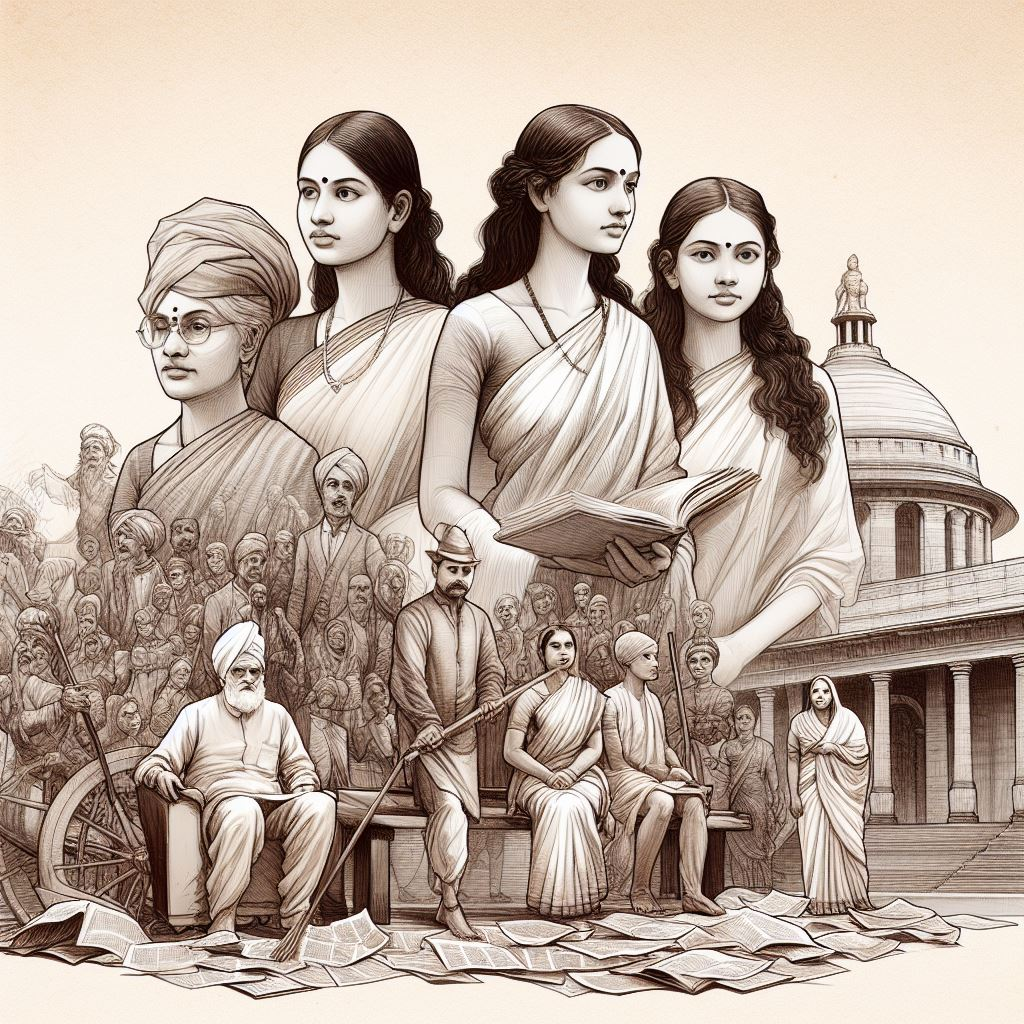Elite Theory
Although the major elements of conflict theory were set out by Marx and Weber, a number of other theorists developed comparable ideas that have also had a significant impact on modern analysts. The most important are the elite theorists (namely Pareto, Mosca, and Michels), Thorstein Veblen, and Joseph Schumpeter.
The most prominent elite theorists are Weber’s contemporary, Vilfredo Pareto (1848-1923); Pareto’s great rival, Gaetano Mosca (1858-1941); and Weber’s friend, Robert Michels (1876-1936). Although in no sense did they form a school, they shared a number of important ideas.
Their central argument was that only a small number of people in any organization can hold authority and that their occupation of these positions automatically places them at odds with those subjected to it. Moreover, these theorists contended, the elites who are in control generally share a common culture, and they are organized-not necessarily formally, but in the sense that they act together to defend their position, as well as using it to their own individual advantage. In other words, elite theory presents explicitly the argument that people’s self-interest and the intrinsically unequal nature of power make conflict both inevitable and permanent. Michels’ main concern was with the so-called “iron law of oligarchy,” the proposition that small groups in authority come to run political parties essentially for their own ends. Mosca was primarily concerned with the conflict between holders of political power and those whom they dominate. Indeed, Mosca upended Marx, identifying political positions as the source of domination in all other spheres, including the economic. Pareto, on the other hand, recognized the existence of other nonpolitical elites; but he emphasized the “governing elites” who rule a society, and the existence of ruling and subject classes who face each other like alien nations. The modern analytic theorists, especially Dahrendorf, have been most influenced by the elite theorists’ insistence on authority and the state as dominant sources of power. Their general image of society as divided horizontally into an elite and a mass is also apparent in C. Wright Mills’ social critique.
Thorstein Veblen (1857-1929):
Veblen’s major importance for modem conflict theory lies in the fact that he was one of the very few early American sociologists to analyze the roots of power and conflict in a broad historical context. Early American sociologists were essentially empirical and pragmatic in style, and only of America could it be said that here “sociology is practiced without socialism.” Instead, they tended to be reformers, like the highly influential Lester Ward, who approached “social problems” with faith in government policies and gradualist reforms. Veblen, by contrast, analyzed society in terms of the conflicting interests of different social groups, and he also denounced passionately much of the existing order. Among modem theorists, C. Wright Mills both continued this tradition and drew directly on Veblen in his discussion of status struggles. Veblen, like Marx, believed that modem society is characterized by the conflict between opposing “economic” groups. In his case, they are the “industrial” class, who actually make goods, and the “pecuniary” class, who are involved in finance and sales and whom he characterized as parasites living off the innovation and productiveness of the rest of the population.12 Veblen was also interested in the constants of human nature that underlie social behavior. He argued that people desire passionately the esteem of others and that esteem is essentially a competitive affair since for everyone to enjoy high status is a contradiction in terms. A very large part of people’s behavior, Veblen argued, especially styles of consumption and leisure can be explained by the struggle for high standing in the eyes of one’s neighbors.
Joseph Schumpeter (1883-1950):
Of the generation that followed Weber, it was the Austrian Joseph Schumpeter who most clearly developed Weber’s interest in how a group’s success is rooted in its social position and in the importance of legitimacy. He also developed Marx’s ideas about changes in the distribution of power and with them the process of human history. Schumpeter argued that “classes”-a term he used loosely to describe more or less organized and distinctive social groups-achieve power because they command skills that are either new and innovative or that (because of changing circumstances) are far more important than they were in the past. Their position can then be used to obtain further wealth and privilege, dispose of older groups, and protect themselves from the competition. Ultimately, however, because they fail to continue providing valued services and because new innovatory groups rise up, powerful classes are replaced by others. The new classes attack the old successfully and deny the legitimacy of their position. Thus, late twentieth-century America contains large numbers of people whose occupations simply did not exist a short time ago. The success of, for example, the industries of Silicon Valley has created major shifts in the economic and political power of various states. In the United Kingdom, the workforce in traditional industries employing manual workers has shrunk enormously. The Labour Party found it harder to win a general election during the 1970s and 1980s partly for this reason. It simply has fewer “reliable” manual workers’ votes than in the past.
Two of Schumpeter’s own most interesting examples are the rise of imperialist warrior groups and the decline of the capitalist bourgeoisie. He argues that the medieval feudal aristocracy developed from warrior groups. They attained power in a society where war was continual, where people consequently sought armed protection, and where fighting skills had to be acquired and maintained over a lifetime. As this situation changed with the rise of the modern state, modern arms, and the conscript army, the aristocracy’s position declined. At present, Schumpeter argues, the capitalist class, which ascended because of its economic achievements, is in decline in its turn. Technological innovation has become institutionalized, and independent entrepreneurs are less important. Meanwhile, a new class of intellectuals, with its own group attitudes and group interests has arisen, undermining the legitimacy of the old order and creating for itself a new power base in the increasingly important government bureaucracies.
Schumpeter had no belief in a conflict-free utopia, and he tended to regret the passing of capitalist society rather than use his work as a vehicle for criticism and advocacy of change. However, just as he acknowledged his great debt to Marx, so his own work has influenced “critical” modem theorists, as well as those who, like him, believe in an objective, analytic sociology. In particular, the influence of his ideas about capitalism’s loss of legitimacy is apparent in the work of Jurgen Habermas, the most important active theorist in the tradition of the Frankfurt School


